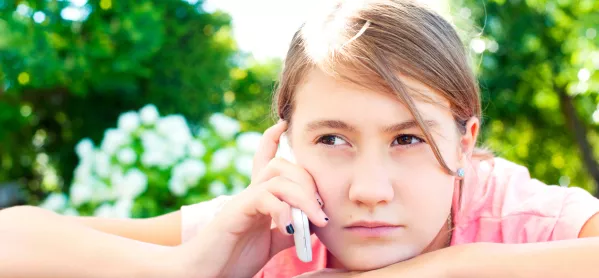When pupils return to physical classrooms once more, we are perhaps overlooking a fundamental shift that most children in secondary will have to adapt to: how they were learning at home is very different to how they will be learning back in school.
What are the key areas of concern?
1. Loss of screen time
For a start, most schools will be taking the tech away. After months of working on a computer or device, of filling hours where they cannot go out on Netflix and their phones, teens will be plunged into a largely analogue school existence.
You might think that is a good thing, and certainly, I do worry about the amount of screen time pupils will have been exposed to. Students have talked about league tables that can show how long you have been gaming. Some game for eight hours a day and it is like a badge of honour.
We might not approve, but withdrawal from this should not be dismissed as something trivial. Neither should we expect teens to just seamlessly adapt to working with pen and paper again.
We may want to consider gradual withdrawal, attempting a mix of analogue and digital learning in the classroom or addressing the problem head-on and talking it through with pupils to see what they suggest.
And we could start weaning them off tech now. Maybe we could look at the work we set over the last few weeks of term. My Head of PSHE set a great wellbeing task recently. The exercise was to put the iPad down and go and do something outside, something for others or something new. The response she got back from pupils and parents was great.
2. Out of practice on conversational skills
Because teens are so reliant on their phones, having actual conversations will have been rare during lockdown; they would have kept in touch via messaging apps. That is a very different skill to being able to communicate with someone face-to-face.
Reforming bonds in the classroom is going to be essential in the first few weeks back so we should be explicit in helping teens reconnect. In the past few weeks, with key worker children, I have noticed that some students have struggled going back to sharing and having empathy, even in their small bubbles.
We need to be explicitly modelling conversational skills to our students in those first few weeks - yes, we need them to catch up academically, but if we don’t take the time to catch them up socially, learning will be minimal.
3. Adjusting to a different style of working
As someone who has been switching my days between working at home and then doing a shift in school with the key worker and vulnerable children, I have noticed that the change of pace between the two is remarkable.
On the positive, I have enjoyed the structure of the day in school and seeing people. But I have noticed that not working at my own pace can make me snappy and frustrated. We have created independent learners in the past few months and we need to be aware that they will expect to maintain some of that autonomy. Getting the right balance as the teacher will be tough.
Ceri Stokes is assistant head (DSL) at Kimbolton School in Cambridgeshire. She tweets @CeriStokes





